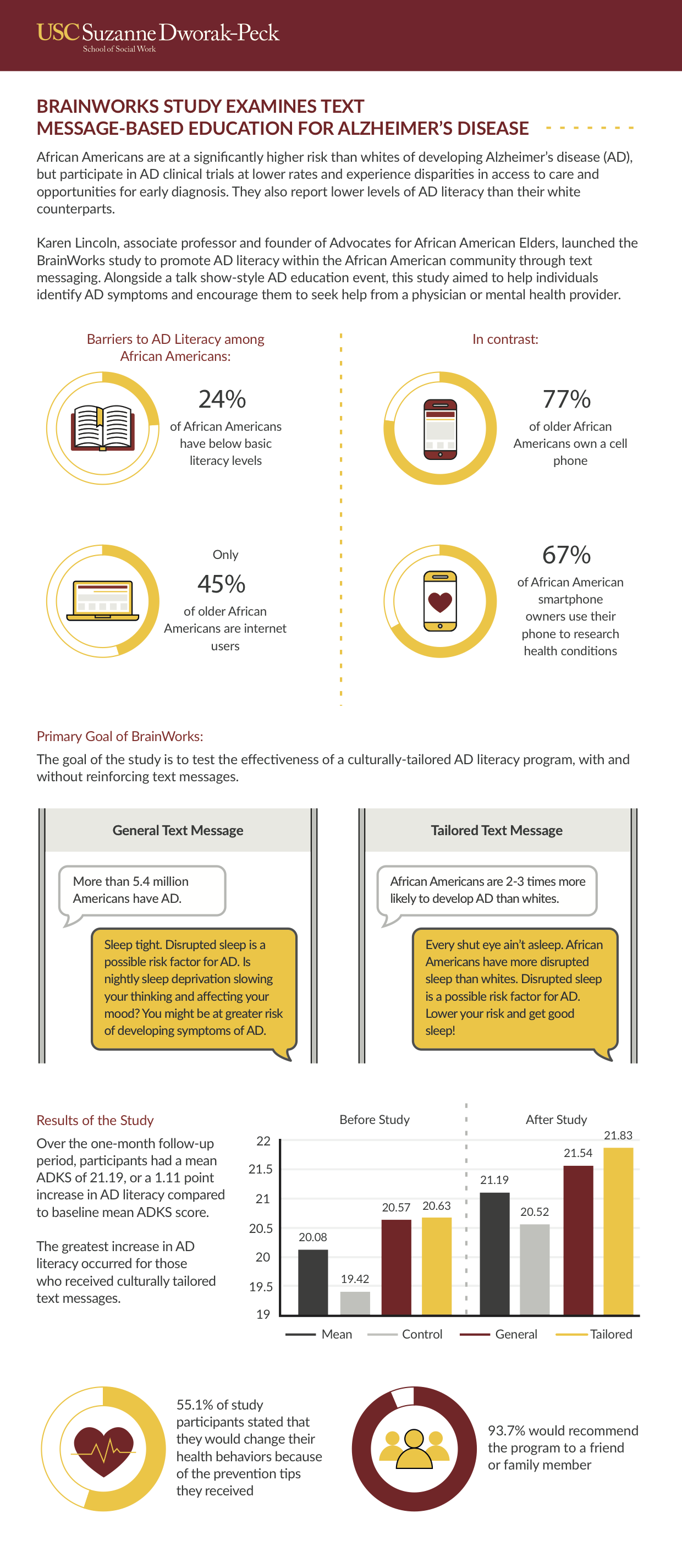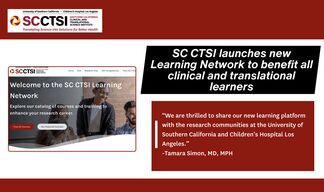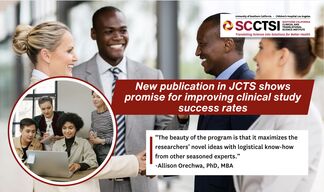What's the Best Way to Stay Healthy? Let's Ask Our Studio Audience
USC social scientist Karen Lincoln, Ph.D., has turned the television talk show format into an effective model for educating underserved members of the African American community about Alzheimer's disease.
For chronic and incurable neurological conditions such as Alzheimer's disease, education is public health's most vital tool.
Unfortunately, transmitting health information effectively to the public can be tough. Not everyone wants to read articles or pamphlets about serious medical topics, or scour the internet for the latest research and recommendations. That was the problem facing Karen Lincoln, MSW, MA, PhD., associate professor of social work in the USC Suzanne Dworak-Peck School of Social Work, who studies Alzheimer's education in the African American community.
African Americans experience disproportionate rates of Alzheimer's, and are diagnosed with the common form of dementia at two to three times the national average.
"We were looking for a way to provide health education about Alzheimer's disease to underserved residents in South Los Angeles, primarily African Americans, who typically have less access to information and who are not really being reached by other outreach programs," said Lincoln. "We wanted to create something that will bring people in and resonate with them—we didn't want to simply give another PowerPoint presentation or pass out brochures."
Everybody loves talk shows.
Lincoln's colleague Bryan Gaines, MSW, a specialist in Alzheimer’s disease education, had an idea: TV talk shows. "Everybody loves talk shows," said Lincoln. "They can be entertaining and informative, and viewers often take away a lot of information."
Health-oriented talk shows have been a staple of daytime TV for decades, but could they work to the more rigorous standards of public health professionals? Lincoln and her co-investigators designed a pilot to find out. The SC CTSI agreed to fund it.
To test the health education value of the talk show model, the research team developed BrainWorks Live, a 60-minute talk show-style live event, complete with guest experts, a host to guide the discussion and a studio audience that was encouraged to ask questions and participate. Study participants, which included about 200 African American middle-aged and older adults made up the audience.
Culturally tailored communication is key.
Like all good showbiz producers and health education researchers, the BrainWorks team tailored their talk show event—"scripted" might be a better word—to their audience. They kept the atmosphere informal, with food, music, and lots of mingling and talking, said Lincoln. For scheduling ease, the researchers staged two BrainWorks Live events, splitting the participants between them.
But the goal was to test the format's ability to educate the audience about Alzheimer's, maintaining brain health, and about early warning signs of the condition.
Lincoln served as a guest expert, along with Michael Harrington, director of neurosciences at the Huntington Medical Research Institutes and a part-time professor of research neurology at USC, who gave the audience an overview of Alzheimer's research.
In the role of host was Rose Monteiro, a former longtime professor at the USC School of Social Work and clinician, who also has deep experience in community outreach and education. "Rose is funny and charismatic, but because of her expertise she was also able to ask questions to translate some of the scientific information and keep the audience engaged," said Lincoln.
Researchers followed up the BrainWorks Live events with text messages to participants that contained additional reinforcing information about Alzheimer's. One group received text messages that were culturally tailored to the African American community, a second group received messages based on existing printed educational materials, and a control group received no texts.
When Lincoln and the BrainWorks team measured knowledge of Alzheimer's disease among the study participants, they found that those who attended the talk show event and received the culturally tailored text messages scored significantly higher than the other test arms.
"We found that the people in the audience really understood the information discussed in the show, even the most complicated information," said Lincoln. "They retained it and could accurately repeat it back to us afterwards."
The researchers published their findings in the American Journal of Geriatric Psychiatry. Lincoln coauthored with Gaines, and Tiffany W. Chow, MD, a professor of clinical neurology and Director of Clinical Monitoring and Diversity Specialist at the USC Alzheimer's Therapeutic Research Institute, titled, BrainWorks: A Comparative Effectiveness Trial to Examine Alzheimer's Disease Education for Community-Dwelling African Americans.
The SC CTSI's Community Engagement Core also assisted the BrainWorks study, providing additional funding for participant recruitment.
Alzheimer's disease has remained notably resistant to treatment, and until effective interventions are developed, education is crucial, explained Lincoln. "Social workers typically encounter patients at the crisis stage of Alzheimer's because family members missed the signs and symptoms. My goal with BrainWorks is to educate people before they get to that crisis, and before there's a dangerous accident or emergency."




